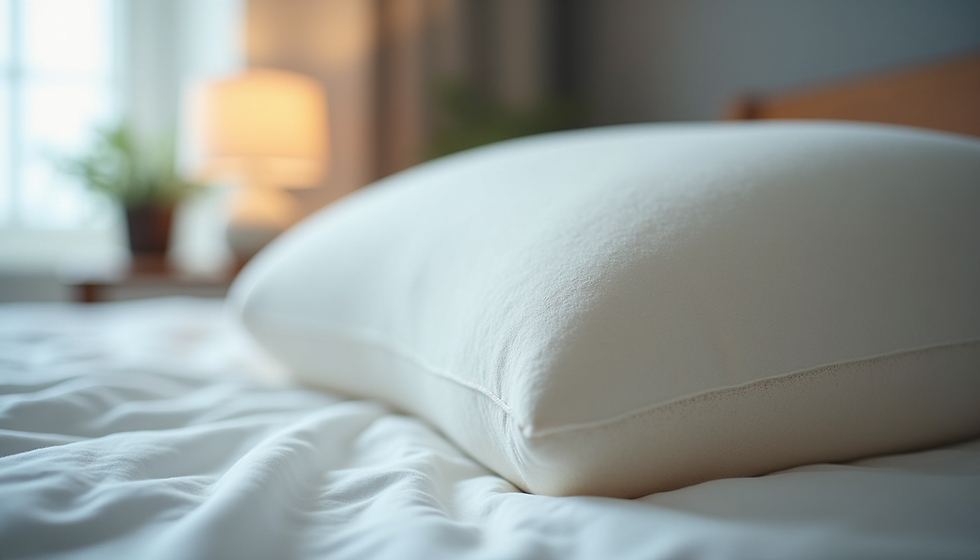How coffee can boost your next workout
- Patrick Wright
- Feb 14, 2020
- 4 min read

If you enjoy the alertness and focus brought by your morning coffee, you might be wondering if it can boost your ability to exercise too. The simple answer is yes. "Caffeine is one of the relatively few substances for which there is a very large amount of evidence to say that it has what's known as an ergogenic effect, which means work-enhancing or work-producing," says Stephen Bird, a professor of exercise physiology at RMIT University. For people doing endurance activities, like long-distance running, caffeine helps because it can reduce the sense of tiredness and fatigue. If you favour resistance exercise like weightlifting, caffeine has been shown to increase strength and power. But does it matter when you have caffeine? How effective is it? And how much is too much? Here's what the experts have to say.
How much does caffeine improve performance? The short answer is not much. One recent review of 300 studies on caffeine and exercise found that the benefit for the average person is likely to be a 2 to 6 per cent boost in performance. If you're an average gymgoer, caffeine won't be a game-changer. But the small boost can be meaningful for competitive athletes, where every little advantage counts.
How much coffee do you need to drink to see a benefit? This is a tricky question because people have different sensitivities to caffeine. While one cup might make one person feel great, it might leave someone else feeling jittery and uncomfortable. Louise Burke is a professor of sports nutrition at the Australian Catholic University and chief of nutritional strategy at the Australian Institute of Sport. Her advice is to find the lowest dose that works. "It's the same as using it in everyday life. Most people who use coffee learn to spread it out so it hits the point in our days where we're starting to fatigue," she says. If you want to get technical, caffeine's effects are "reasonably well seen" at three milligrams per kilo of body mass, Professor Burke says. In other words, if you weigh about 70 kilograms, you should notice benefits after about 210 milligrams of caffeine, equivalent to one very strong shot of espresso. What complicates things is that the caffeine content in coffee can vary widely. When researchers tested the caffeine content of different cups of espresso on the Gold Coast, they found it varied from 25 milligrams to more than 200 milligrams per serve.
Coffee and exercise in a nutshell "Think about caffeine and exercise in the same way you would in your everyday life. "I wouldn't suggest that you have more caffeine in your day, because most of us are drinking enough of it already, but maybe think about how you can reorganise what you're already having so you're aligning it to your exercise."
— Louise Burke, professor of sports nutrition at the Australian Catholic University and chief of nutritional strategy at the Australian Institute of Sport "If it's a modest amount, and you enjoy your coffee, then go for it — have that cup of coffee before you go out for your run or you do a weight training session. "But if you're just a healthy gymgoer, taking caffeine tablets is a whole different story. You have to be very careful going down that path."
— Stephen Bird, professor of exercise physiology, RMIT University How much is too much? While small amounts of caffeine can benefit performance, taking too much can lead to side effects like insomnia, headaches and muscle twitching. Again, what might be fine for someone might be too much for someone else — so it's important to have a sense of your limits. "You don't want to exceed your tolerance, whatever that may be," Professor Bird says. "The problem is this can be very variable, with some people not being able to take almost any caffeine where other people can take very large amounts without an issue."
How long before exercise should you drink coffee? Studies have shown that caffeine is most beneficial when taken 45 to 90 minutes before exercise. To keep things simple, Professor Bird recommends drinking your coffee about an hour before exercise if you want to get the maximum benefit.
Why coffee helps our workouts Because the performance benefits we get from coffee have to do with caffeine, strong tea or other forms of caffeine will work just as well. (Decaf won't have the same effect.) What isn't entirely clear is why caffeine is so helpful when we're exercising — but there are some theories. Professor Bird says the reduced sense of fatigue we get from caffeine could have something to do with our adrenal glands. When it comes to strength and power, there are suggestions that caffeine could be helping the nervous system communicate with our muscles, he adds. Why coffee helps our workouts Because the performance benefits we get from coffee have to do with caffeine, strong tea or other forms of caffeine will work just as well. (Decaf won't have the same effect.) What isn't entirely clear is why caffeine is so helpful when we're exercising — but there are some theories. Professor Bird says the reduced sense of fatigue we get from caffeine could have something to do with our adrenal glands. When it comes to strength and power, there are suggestions that caffeine could be helping the nervous system communicate with our muscles, he adds.
Article from ABC Life









Comments